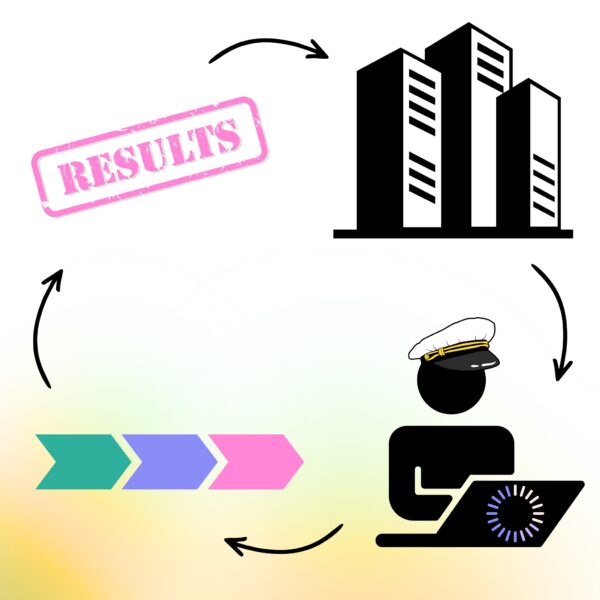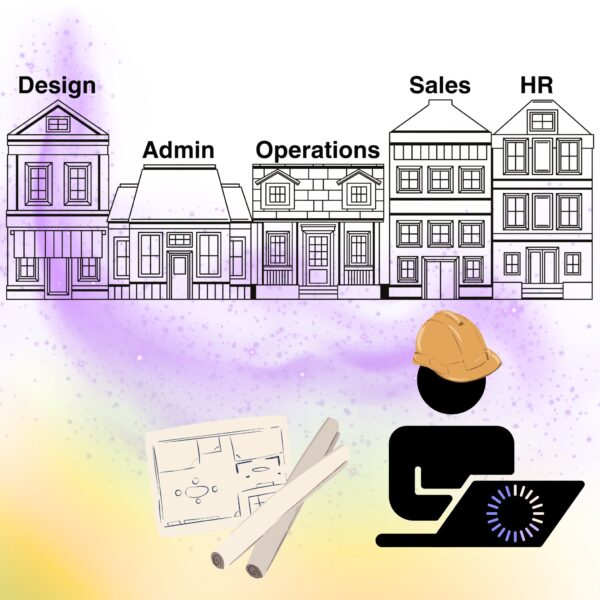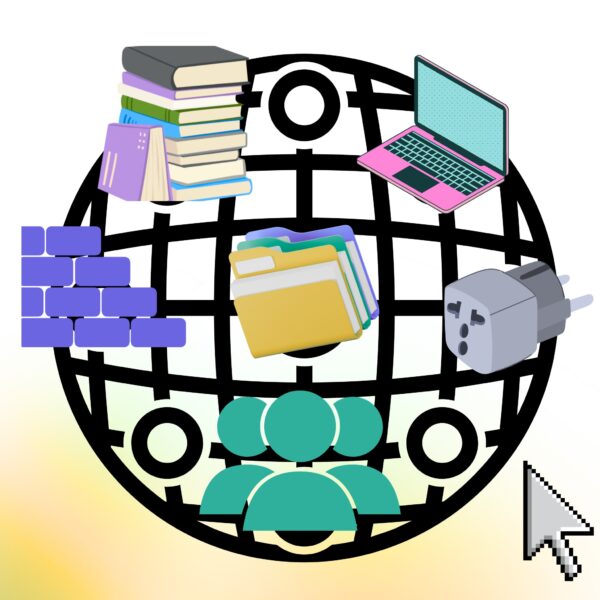AI Consultants? Let’s be honest: “AI” is everywhere now, and you might be bored to hear about yet another new trend. But making it work for your business? That’s a whole different story. If you’ve ever felt lost in a sea of tech jargon or wondered if AI is just another passing trend, you’re not alone. At Aurora we care about everything relating to AI and business application; with our Learning Vault you can explore more about it.
This guide, specifically, pulls back the curtain on AI consultants; the people who translate all that hype into results you can actually see. Whether you’re a CEO, a team lead, or just someone who wants to get things done smarter, this breakdown is for you…
We recently published an in-depth article talking about AI Tools for Consultants, but let’s flip the coin for the ones that hire consultants. Let’s talk about a modern form of consultancy…
What Is an AI Consultant?
Think of an AI consultancy as your company’s personal AI navigator. They’re not just coders or techies—they’re the people who figure out where AI actually fits in your business and how to make it deliver real results. Here’s what a great AI consulting services bring to the table:
- Opportunity spotting: They hunt for bottlenecks, inefficiencies, and areas where AI can truly move the needle—not just add trendy tech for the sake of it.
- Custom strategy: Forget cookie-cutter solutions. They design a plan tailored to your specific goals, team, and market.
- Hands-on help: From integrating new tools with your current systems to training your staff, they roll up their sleeves and do the work alongside you.
- Continuous support: The relationship doesn’t end at launch. They stick around, optimizing and improving your AI initiatives as your business grows.
Want a peek behind the scenes of real AI consulting?
Check out this real-world Reddit thread on r/Entrepreneur:
_”I’m an AI consultant at an Inc 500 services company AMA…
Although I have a computer science background, I’m not an AI research scientist. If you want information about implementation, I’ll do my best to direct you to the right white/research papers.I specialize in helping companies (corporate and enterprises) identify AI use cases, potential ROM, scalability, and ROI projections. If you wanted a chance to ask a consultant but were worried about T&M, now’s your chance! haha”_
— pyslayer •2 yr. ago
This real-world perspective shows that AI consultants are not just technical guides; they’re strategic partners focused on finding the right fit, delivering value, and demystifying the entire AI journey for businesses of all sizes.

300 Hours of AI Consulting in 10 Key Insights
Before you dive deeper, here’s a summary of the most valuable real-world lessons from hundreds of hours of AI consulting, as shared by industry veteran Mark Kashef.
- AI Adoption Is for Everyone: From skeptics to enthusiasts, every company is somewhere on the AI journey—what matters is starting with honest expectations, not hype.
- Personas Matter: There are five common personas in AI adoption—skeptics, enthusiasts, business-focused, advanced users, and orchestrators. Understanding your own team’s mindset helps tailor the approach.
- AI Is Broad: Most businesses will benefit most from machine learning and generative AI, not complex robotics or deep learning.
- Generative AI Lowers Barriers: Tools like ChatGPT and Aurora Slides make powerful AI accessible to non-technical teams—no data science PhD required.
- Start Where It Hurts: The best AI projects solve high-friction, repetitive problems first—admin work, content generation, customer support.
- Data Readiness Is Key: Clean, consistent data is the backbone; if you start with a mess, you’ll get a mess back.
- Practical Strategy Wins: Align AI projects with real business goals, not just what’s “shiny” or trendy.
- Governance and Security: Don’t skip compliance, privacy, and ethical considerations—especially with sensitive data.
- Human-in-the-Loop: Most successful projects blend automation with human oversight, ensuring quality and preventing “AI hallucinations.”
- Culture Change: AI works best when embraced company-wide; resistance kills value more than technology ever could.
Want to see how these lessons apply to your company? Contact the Aurora team for a free AI readiness consultation.
Watch the full YouTube video here:
Why Companies Hire AI Consultants
Let’s get real: most businesses don’t hire AI experts because it’s trendy; they do it because they’re stuck. Maybe you’re overwhelmed by data, fighting outdated processes, or worried about falling behind competitors. Here’s where AI consultants shine:
Common Challenges and How Consultants Tackle Them
| The Pain Point | How a Consultant Fixes It | Example/Source |
|---|---|---|
| Data Overload | Builds AI dashboards to transform raw data into actionable insights. | AI in Analytics – A major e-commerce platform uses machine learning to sift through massive customer data, revealing patterns in shopping habits and preferences. |
| Inefficient Manual Work | Automates repetitive tasks so your team can focus on what matters most. | Productivity Gains – British Columbia Investment Management Corporation (BCI) increased productivity by 10–20% and saved thousands of work hours by automating reporting and feedback analysis with AI. |
| Flat Customer Experience | Implements smart chatbots and personalized outreach to boost engagement. | Zendesk & Generative AI – Zendesk’s AI helps agents quickly draft better replies, improving customer response quality and speed. |
| Security Worries | Deploys AI for rapid threat detection and automated responses. | Fraud Prevention – BBVA uses Google SecOps AI to identify and act on security threats in seconds, protecting sensitive financial data. |
| Supply Chain Headaches | Uses AI to predict demand and optimize inventory or logistics. | Supply Chain Example – Hemominas, a Brazilian blood bank, leverages AI chatbots to streamline donor scheduling and manage supply, potentially saving half a million lives each year. |
| Change Resistance | Trains and supports teams to adopt new AI tools and workflows. | Change Enablement – Recent global surveys show younger employees are far more likely to embrace AI at work, while older workers are often hesitant, highlighting the need for targeted training and support. |
Whether you’re wrestling with data overload or trying to modernize your customer experience, AI consultants offer targeted expertise that turns challenges into opportunities. Their value isn’t just in solving technical problems; it’s in unlocking new potential for growth, agility, and innovation. By bringing in AI consulting services, companies position themselves to break through barriers and stay ahead in a rapidly changing business landscape.

Real-World User Insight: Saving 20+ Hours a Week
Posted on r/aipromptprogramming:
“How I saved 20+ hours a week in my business using AI automation (real examples + templates)
“Over the last few months, I’ve been experimenting with using AI to automate repetitive parts of my service business (things like replying to leads, sending onboarding emails, and writing social content).
I ended up saving over 20 hours/week — and I’m not a developer or technical person at all.Here’s a quick breakdown of what I did:
- Lead filtering system – New client form submissions go through a short automation that checks if they’re a good fit and replies with next steps.
- Content prompt flow – I use a prompt template with ChatGPT that generates daily posts for social in my tone, based on my niche.
- Client onboarding – Automated emails, resource delivery, and gentle upsells based on what a client signed up for.
If anyone here is running a service business and wants to save time using systems like these, I’m happy to answer questions or explain more. Curious: is anyone else here using AI in small ways day to day?” – MorgancWilliams • 4 mo. ago
This real-world feedback from the AI prompt programming community highlights just how much time and effort even non-technical business owners can save with practical AI solutions and guidance.
Analogy—Your Business’s “Architect and Guide”
Ever renovated an old house? You can’t just slap high-tech gadgets on the walls and hope it works. You need an architect—someone who sees the big picture (clients’ needs analysis), plans every room, and ensures the plumbing and wiring don’t clash. An AI adviser is that architect for your business. They design the transformation, guide you through each phase, some even provide on-going support, and make sure every new “feature” works in harmony—not just on paper, but in real life.
And when things get messy (because they always do), they’re right there with the hard hat, helping you adapt.
But the analogy goes even deeper:
- Just as an architect coordinates with electricians, plumbers, and builders, AI consultants bridge the gap between your IT team, business units, and leadership.
- They create a master plan—a digital “blueprint”—tailored for your workflow, data, and goals.
- Instead of letting departments become isolated “rooms” with their own disconnected tools, AI experts ensure everything is integrated, scalable, and future-proof.
- When the unexpected happens (new regulations, shifting market needs, technical hiccups), your “AI expert” doesn’t just hand over plans and disappear. They’re your ongoing partner, tweaking the design, troubleshooting on the ground, and making sure your business keeps running smoothly as it evolves.
In short:
The core of consulting AI is not to just install technology. These are strategic architects and hands-on guides, helping you build a business that’s smarter, more connected, and ready for the future.

The AI Consulting Process—What to Expect
Implementing AI isn’t just about picking a tool—it’s a journey with clear, strategic steps. Here’s how a typical AI consulting engagement unfolds, incorporating industry best practices and insights from Whitehat SEO’s guide to AI consultancy:
- Define the Business Problem:
Start by zeroing in on the specific business problem or opportunity you want to address. This is like drawing your map—it keeps the project focused and ensures your AI initiative is aiming at the right goals. - Discovery & Needs Assessment:
Consultants dig deep into your pain points, workflows, and unique team dynamics to understand where AI can make the biggest impact. - Strategic Roadmap:
You’ll receive a tailored AI roadmap—not a generic “AI starter kit”—that outlines technology choices, timelines, and measurable success criteria. - Proof-of-Concept & Pilot Initiatives:
Before a full-scale rollout, it’s crucial to validate AI’s value with a proof-of-concept or pilot project. Partnering with experts, you can design and execute a focused experiment that demonstrates real results and builds organizational confidence in your AI journey.
(Persisting towards innovation requires proof-of-concept initiatives that validate AI-driven results. Partner with our team to conceptualise, design, and execute a pilot project that cements AI value within your organisation. Harness AI to push the boundaries of your business. - Solution Build & Testing:
Implementation isn’t just technical—it’s about ensuring the AI solution actually works in your real-world environment. Expect hands-on support for integration, troubleshooting, and iterating. - Training & Change Management:
Even the best AI is useless if your team doesn’t buy in. Great consultants make sure everyone is equipped, confident, and on board for the change. - Continuous Optimization:
AI isn’t “set it and forget it.” Consultants stick around to refine, adapt, and help you scale as your needs grow.
By following this proven, step-by-step approach, AI specialists don’t just deliver technology—they empower your organization to confidently embrace change, unlock new value, and build AI capabilities that keep delivering results long after launch. When you know what to expect from the process, you’re set up for a smoother, smarter AI journey.
What Sets Top AI Consultants Apart?
It’s not just about coding chops.
The best AI advisers blend:
- Tech mastery: They know Python and machine learning cold, but also which tools suit your business.
- Business sense: They “get” your goals and speak your language—not just tech jargon.
- People skills: They can explain tough concepts to non-techies (and don’t make you feel dumb).
- Adaptability: Change is messy. Top consultants aren’t fazed by curveballs—they adjust on the fly.
“A consultant may also help with capacity building — providing you with the tools, knowledge, and organizational improvements necessary to effectively maintain your newfound machine learning capabilities. If you are interested in building your own team, you’ll need some basic infrastructure for data collection in place; it’s much easier to attract good data scientists if you have good data for them to work with.” – Nikolas Soriano
But the real secret ingredient? Top AI advisers are connectors. They bring together the right mix of people, data, and infrastructure so that every part of your organization benefits; not just IT. They focus on capacity building, helping you develop the tools, knowledge, and systems to maintain and grow your AI capabilities long after the project is done.
Pro tip:
Ask for stories, scenarios, not just resumes. AI consultants who can tell you about a challenge they solved (and how it felt) is worth their weight in gold.
The best AI consultants don’t just solve problems—they empower your people, build your organization’s capabilities, and help you turn change into opportunity.

Choosing the Right AI Consultants
Don’t settle for big promises and buzzwords.
- Dig deeper: How did they help a company like yours?
- Check compatibility: Are they listening, or just pitching?
- Demand transparency: If they’re vague about process or pricing, walk away.
Checklist for your shortlist:
- Industry expertise
- Relevant case studies
- Willingness to customize
- Clear answers to “How will you work with my team?”
- Openness and transparency about risks, not just wins
- Technical and AI Expertise (it sounds obvious but just a reminder)
Real-World Wins—When AI Consulting Delivers
- Retail: Forecasting that finally matches reality = less waste, more sales.
“AI uncovers buying patterns, optimizes pricing strategies, and refines customer segmentation for better targeting.” – CodeBrew Labs
- Finance: AI models that spot fraud in real time, saving money and reputation
“AI systems can analyze historical transaction data to detect fraud, assess credit risk, or forecast market trends.” – CodeBrew Labs
- Healthcare: Smarter triage, healthier patients, less burnout
“For instance, generative AI consultants could concentrate on creating and improving a machine learning model to forecast patient outcomes using past data for a healthcare organization.” – Indata Labs
Seen this firsthand? Maybe not yet, but chances are you will pretty soon!
Turning AI Strategy Into Action
Picture this:
Your consultant hands you a roadmap. It’s brilliant—but how do you get the rest of your team (or your board) excited? That’s where Aurora Slides comes in. It’s like having a storytelling sidekick with superpowers:
- Drop in your notes, data, or transcripts— No problem, turn it into a visual story, fast.
- No design skills? No problem. Pick a template, tweak a few things in plain English, and you’re good to go.
- Need to share securely or present live? Done, in minutes.
But Aurora Slides does more than make things look pretty. It bridges the “last mile” between strategy and execution by transforming complex AI plans into presentations people actually understand and remember. Instead of struggling to explain technical concepts or losing your audience in a sea of jargon, you can showcase the “why” and “how” behind your AI initiative—using visuals, data highlights, and clear story flow.
Even better, Aurora Slides is built for collaboration. Want to gather feedback, update your deck as the project evolves, or invite different stakeholders to contribute? It’s all just a few clicks away. Whether you’re pitching a new AI pilot, reporting on results, or training your team, this platform helps everyone get on the same page; literally and figuratively.
This is your secret weapon for turning AI strategy into action. It helps you communicate vision, build buy-in, and drive momentum—so your AI journey moves from “plan” to “progress” with clarity and confidence.

Ready to Unlock Real AI Value?
If you’re ready to stop guessing and start growing, the Aurora team is here to help. Book a free discovery call with our AI pros → Or just drop us a DM with your biggest challenge—we love a good puzzle.
Conclusion & Next Steps
AI consultants are the real-world bridge between dreams and results. If you’re ready to stop guessing and start growing, here’s what to do:
- Write down your biggest challenges.
- Collect your data (don’t worry if it’s messy).
- Reach out to a consultant who feels like a partner, not a salesperson.
And when you’re ready to wow your team with the results? Give Aurora Slides a try—it’s the final mile for making AI real, for everyone. And if you’re a consultant learn more about it by reading our blog AI Tools for Consultants.
Frequently Asked Questions (FAQs)
What’s the ROI of hiring AI consultants?
A: If you’re clear about your goals, most see payback in 6–12 months. Sometimes even sooner. Also depending on the region you decide to hire, wages change drastically.
How do consultants handle data privacy?
A: The best build privacy and compliance into every step—they won’t risk your reputation. AI consultants must ensure the have all the necessary consent and legal frameworks in order to manage data responsibly.
How long will the AI Adoption Process take?
A: Small projects: a few weeks. Big ones: months. But you should be getting a timeline up front.
Will I be involved in the AI Adoption Process?
A: Absolutely. Expect workshops, feedback sessions, and real partnership.
How can Aurora Slides help after an AI project?
A: It makes your big wins and next steps easy to share—turning technical reports into presentations anyone can understand.
Do I need to be a techie to use Aurora Slides?
A: Nope. If you can send an email, you can use Aurora Slides. It does the heavy lifting.
